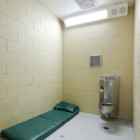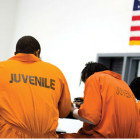
The Power Grab and Prison Sexual Abuse
|
It’s an optimistic headline: “Prison Rape: Obama’s Program to Stop It”. It leads into a comprehensive New York Review of Books article on three recently released Federal government publications. Two of these documents examine sexual abuse in the nation’s detention centers while the other outlines the Department of Justice’s regulations for eliminating prison rape. All three aim to address the appalling number of people—young and old, female and male, citizen and those awaiting deportation— who routinely suffer sexual violence while in lockup, an estimated 209,000 plus every year according to the Justice Department. So where’s the optimism?








